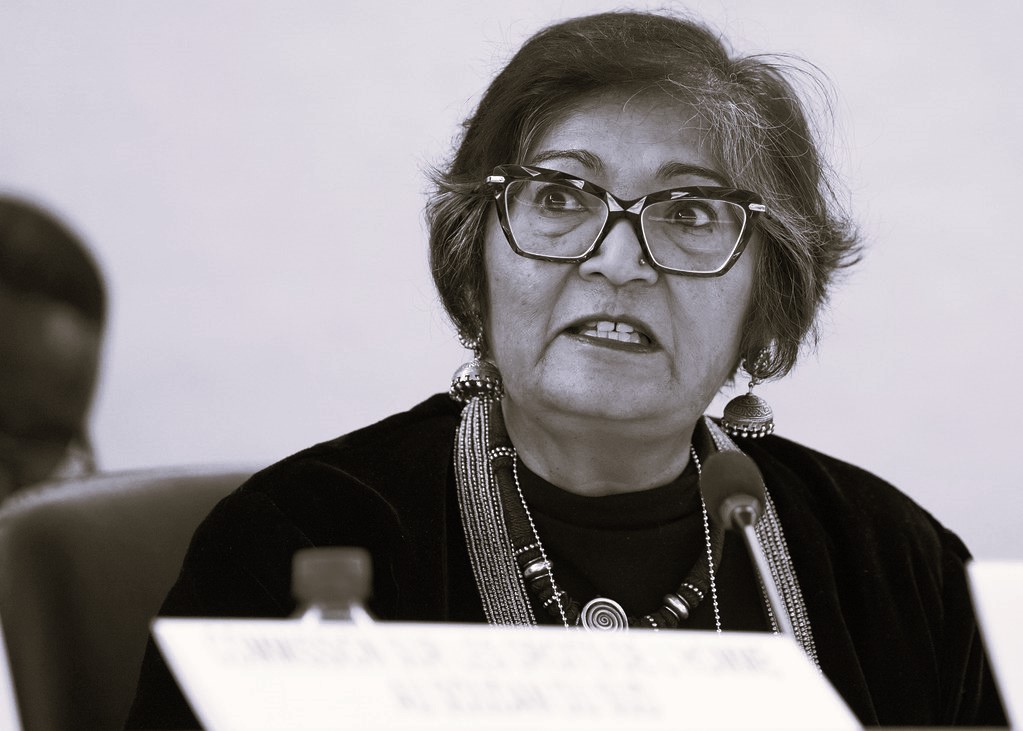First, let me clarify that I do not possess an insatiable urge to speak at public meetings. Over the years, I’ve addressed countless gatherings—formal and informal, large and small. What follows is the story of one such occasion.
Yasmin Sooka is a well-known human rights NGO leader heading an organization called the International Truth and Justice Project (ITJP). They have recently released a report on the murder of Tamil journalist Nimalarajan in October 2000. It is commendable work.
When Nimalarajan was killed, we at the Free Media Movement actively opposed the killing and fought for justice on his behalf. I am not aware of Yasmin Sooka’s involvement at that time. Meanwhile, several of us intervened to ensure the safety of Nimalarajan’s family, who eventually obtained visas to Canada after some delay.
At a wartime meeting held in Jaffna, I spoke on behalf of Nimalarajan and publicly stated that the perpetrators must be brought to justice. On the first anniversary of Nimalarajan’s assassination, several media colleagues who were supposed to attend the poster-pasting event in Colombo could not make it, so three of us took on the responsibility.
Nimalarajan was a journalist who tolerated different opinions and engaged with diverse people. I rode with him on his brakeless bicycle and undertook many dangerous journeys for media reporting during the war. I am not merely stating this in passing—I could write many pages recounting such experiences.
Comrade Brito Fernando invited me a week ago to speak at an event where his organization would release the report prepared by Yasmin Sooka’s organization and to share my views on the report and Nimalarajan’s legacy. I accepted the invitation because I respect Brito’s work. He confirmed this again during a meeting on the 31st. His media officer visited me and even obtained a promotional video to be used for the event.
However, on the 3rd, the media officer sent me a promotional poster listing three other speakers but not me. Neither Brito Fernando, head of the Disappeared Families Organisation, nor anyone else informed me that my invitation had been rescinded.
When I asked Comrade Brito about this change, he revealed that the funding organization behind the event and the report—Yasmin Sooka’s organization—had instructed them not to allow me to speak.
Failure to stand up against such a ban on a local rights activist is cowardice. Who can say that the ban imposed on me today by Yasmin Sooka’s organization will not be imposed on another activist by a different foreign-funded NGO tomorrow? Yasmin Sooka has set a dangerous precedent.
This action undermines my freedom of the press and freedom of speech, driven by the financial power of Yasmin Sooka’s organization. I wondered what Nimalarajan would have said if he were alive. Perhaps he would have told them, “Tell them to roll their money up and put it in their ass.”
If Yasmin Sooka has any allegations against me, those should be addressed openly as part of human rights accountability. If the allegations were made to the Families of the Disappeared, they should be disclosed publicly as well. Injunctions and bans cannot be imposed without clear and proven allegations.
Many Sri Lankans, including myself, have sacrificed much for ethnic peace and media freedom in this country. Brito Fernando is a courageous and respected symbol of decades of rights activism. Making such a person bend by sheer financial power should be condemned.
And allowing financial influence to determine who can speak at a meeting is not only wrong but deplorable.
There was a time after 2009, Yasmin Suka and some of her team didn’t have any issues with me working together at the Geneva Human Rights Council.
One thought comes to mind as a possible reason for this decision by Yasmin Sooka’s organization—the campaign they led against the sale of the book The Turning Point, written by former Navy Commander Wasantha Karannagoda in Britain. That book was banned in Britain, a move which, in the internet age, amounts to little more than propaganda. Karannagoda has been sanctioned by the British government for alleged war crimes.
I asked a question regarding this campaign on X: Is Mein Kampf, the book written by Nazi leader and genocidal Adolf Hitler, banned in Britain? Although they didn’t answer, it is not banned in Britain. Banning books, whoever writes is following Hitler.
Furthermore, Israeli Prime Minister Netanyahu, accused by the International Criminal Court of war crimes in Gaza, is not sanctioned by Britain, and ITJP does not campaign to ban him.
Yasmin Sooka’s human rights politics are fundamentally at odds with Nimalarajan’s journalistic and social principles. Regrettably, yielding to the pressures of such an organization does not protect media freedom; it is a betrayal.
I wish the reportt launch sucsess.
